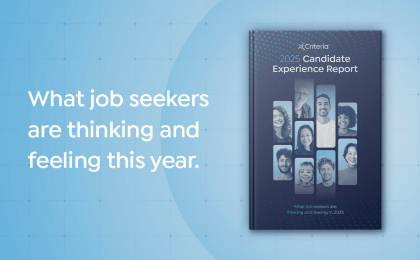According to a recent report from the Society for Human Resource Management (SHRM), soft skills may be in short supply, especially among new college graduates entering the workforce. From the survey, the majority of employers said they were having a difficult time finding graduates with the soft skills needed to succeed at work.
Soft skills have always been important in the workforce, but in today’s modern hiring economy, they may be even more important. After all, advances in technology are automating many of the more manual tasks that people used to do. Some estimates suggest that 25% of jobs in the U.S. are at risk of being automated. This puts a premium on the soft skills that are less likely to be automated in the near future; those less tangible skills that machines haven’t been able to mimic quite yet.
What are soft skills?
Soft skills represent a catch-all category for many of the human qualities that can be hard for us to measure; things like critical thinking, communication skills, problem solving ability, attention to detail, creativity, or even leadership potential. It can be hard to put your finger on what these skills are, but it’s clear to see how critical they are in the workplace.
Soft skills stand in contrast to “hard skills,” which can be defined as the ability to do a certain task or to have a specific competency. It includes things like the ability to solve a calculus problem, to operate a particular machine, or to use a piece of software.
These are all teachable skills that are easily measured by your ability to actually do the thing you say you can do. Of course, hard skills are also extremely important in the workplace, but they can ultimately be learned fairly easily through training, depending on the difficulty level of the skill.
This is the biggest difference from soft skills. While there’s some evidence that soft skills can be developed and honed over time, they can’t be trained in the traditional sense. If new graduates really are lacking these skills, then employers could be in for a challenge.
It’s also possible that, because the concept of soft skills is so loose, this new generation of job seekers may have a new set of soft skills that we haven’t learned to appreciate or even define. Gen Z is often referred to as the first “tech native” generation, which is a unique skill set on its own. Each new generation brings different skills and qualities that can prove valuable and can even reshape the way work is structured today.
How can you find job candidates with soft skills?
While soft skills aren’t as obvious as hard skills, that doesn’t mean they can’t be measured at all. The first step is to identify which soft skills are the most critical for the role you need to fill. For example, if you’re hiring a customer service role, then communication, patience, and empathy are likely to be high on your list. If you’re hiring an analyst, then critical thinking and attention to detail will be important.
Pre-employment assessments can identify many of these soft skills, whether through a test of cognitive aptitude or a personality assessment. Administering assessments earlier in the process enables you to learn more objective information about your candidates’ capabilities that might not have come across on their resumes alone.
In addition, you can assess these soft skills further in the interview stage through questions that seek to understand how a candidate thinks and engages in different situations.
How can you encourage the development of soft skills in employees?
While soft skills aren’t as trainable as hard skills, they can still be developed over time. Coaching and development can encourage new employees to hone their soft skills over time. In addition, mentorship programs are an effective way to teach by showing how more seasoned employees use soft skills to succeed in the workplace. Much of the drive to improve soft skills must come from the employees themselves, but learning by example is one of the best places to start.





